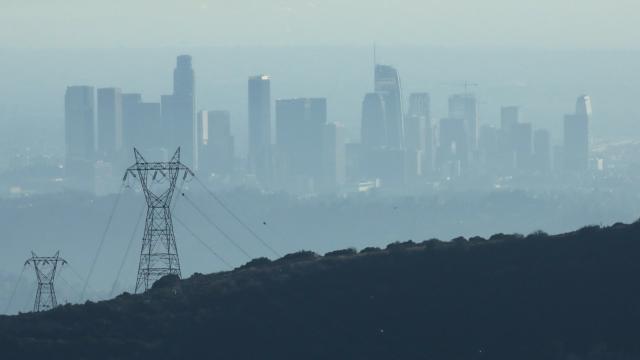Editors of the U.S.’s leading academic journals have come together to voice their worries with Trump’s attempt to limit science within the Environmental Protection Agency.
In a joint statement published Tuesday, the editors-in-chief of Science, Nature, Cell, PNAS, PLOS, and the Lancet called out the EPA’s so-called science transparency proposal, which would require that scientists publishing research behind environmental regulations make all their data public.
That includes private confidential information that would make human study participants”who are usually promised anonymity and that their medical data will be protected”identifiable. And, well, most health studies such as the 1993 Six Cities study that created the foundation for air quality standards depend on these individual data.
In the statement, the editors write:
As leaders of peer-reviewed journals, we support open sharing of research data, but we also recognise the validity of scientific studies that, for confidentiality reasons, cannot indiscriminately share absolutely all data. Datasets featuring personal identifiers”including studies evaluating genomes of thousands of people to characterise medically relevant genetic variants”are but one example.
Such data may be critical to developing new drugs or diagnostic tools but cannot be shared openly; even anonymised personal data can be subject to reidentification, and it has been a longstanding practice for agencies and journals to acknowledge the value of data privacy adjustments.
Indeed, these processes and customs stem from a 150-year evolution within the scientific community to establish these standards, Holden Thorp, the editor-in-chief of Science journals, told Earther. And it’s not as though scientists haven’t established systems to fact check and review the science practically and ethically. Hellooo! That’s why the peer-review process exists and universities have institutional review boards. None of this sacrifices the scientific integrity of science either.
“If we, at our discretion, decide that there’s a way to keep some data private so that we can protect the identity, for example, of patients in health studies, then that’s something the EPA should feel good relying on,” Thorp said.
Plus, the Health Insurance Portability and Accountability Act, otherwise known as HIPAA, legally mandates patient privacy in the U.S. Scientists aren’t just following the law because it’d be illegal not to. They’re doing it because it’s the right thing to do.
“[Keeping data private is] an ethical reason that also has a very logical and important law in the U.S. that is built around that ethical idea,” Thorp said.
The consequences of finalising this proposed EPA rule could be catastrophic for public health. It would undermine rule making and limit the ability of the EPA to use sound science in decision making on future rules.
Even without it, the Trump administration has already attacked a variety of environmental regulations and overseen an increase air pollution in the U.S. for the first time in a decade. Under Trump’s watch, the U.S. saw some 9,700 additional premature deaths between 2016 and 2018 due to worsen air quality. Imagine what would happen if this rule was put in place. The EPA may stop recognising the legitimacy of landmark studies that helped establish air quality standards because of how much data is private. And then? Bye bye, pollution regulations. I would expect no less from this administration.
The editors go on in the statement:
We are also concerned about how the agency plans to consider options related to existing regulations. Even if a new standard is not applied retroactively, the standard could apply when a regulation is updated; thus, foundational science from years past”research on air quality and asthma, for example, or water quality and human health”could be deemed by the EPA to be insufficient for informing our most significant public health issues. That would be a catastrophe.
“I worry that [this rule] would give the EPA a way to say, “˜well, we don’t need this regulation anymore because it’s being supported by science for which not all of the data are completely open”¨,’” Thorp said. “And it’s a way to open the door to weakening environmental regulation.””¨
That’s why these scientific editors are speaking out. Many of these editors published a similar statement in 2018 after the proposal was announced. This time around, though, they’re writing more boldly and frankly about their opposition to this proposal. And they’re asking anyone who reads their statement to let their voices be heard, too.
Not only is this rule a threat to the traditions scientists have practiced for more than a century. It’s a threat to public health, and the result could be deadly.
